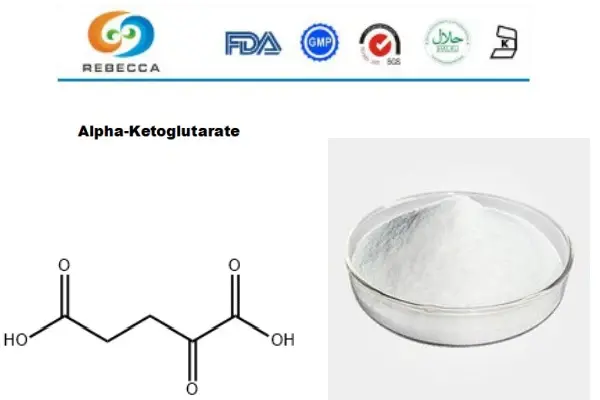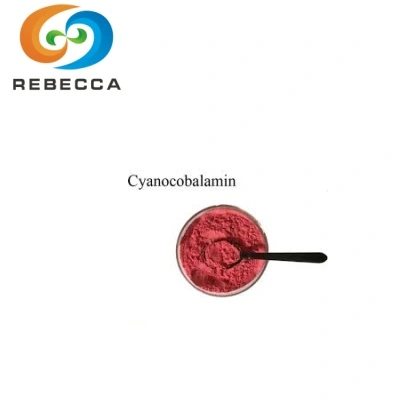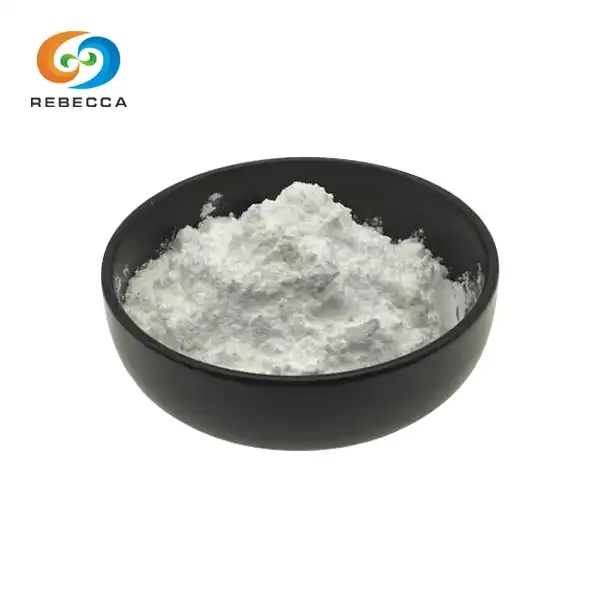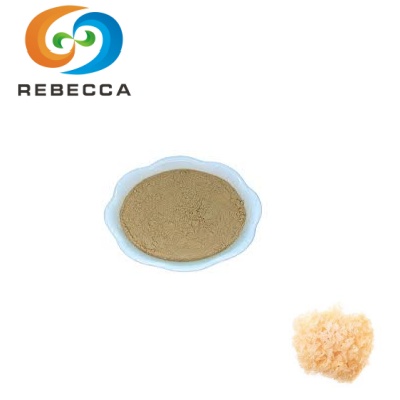Is alpha-ketoglutarate a keto acid?
Alpha-ketoglutarate (AKG) is a key middle of the road in the Krebs cycle, a vital metabolic pathway for energy creation. It is necessary for the synthesis of neurotransmitters and the metabolism of amino acids. AKG is engaged with cell energy creation and goes about as a flagging particle, impacting cell development and separation. Due to the fact that it has been investigated for its potential advantages in athletic performance, aging, and metabolic health, it is also a popular supplement in the health and fitness industry. Its role in various biochemical processes demonstrates its significance in human physiology.

Why is Alpha-Ketoglutarate a Keto Acid?
Alpha ketoglutarate powder (AKG) is a particle that assumes a urgent part in cell digestion. We must examine its chemical structure and properties in order to comprehend why it is categorized as a keto acid. AKG fits the definition of a keto acid because it contains two key features: a ketone group and a carboxyl group.
The ketone group in AKG is located at the second carbon position, which is why it's referred to as an "alpha-keto" compound. This positioning is significant because it determines many of the molecule's chemical properties and biological functions. The presence of this ketone group is what gives AKG its "keto" designation. In addition to the ketone group, it also contains a carboxyl group (-COOH). This carboxyl group is what makes AKG an acid. The combination of these two features - the ketone group and the carboxyl group - is what classifies

Understanding its structural characteristics is crucial. It is a dicarboxylic acid with two carboxyl groups and five carbons. The ketone bunch is arranged between these two carboxyl gatherings. This one-of-a-kind arrangement is what gives AKG its unique chemical properties and the ability to participate in a variety of biochemical reactions in our cells. its chemical properties align perfectly with the classification of a keto acid. It can undergo reactions typical of both ketones and acids. For example, it can be reduced or oxidized, participate in condensation reactions, and act as a hydrogen ion donor in acid-base reactions. alpha ketoglutarate powder is a molecule that is versatile in cellular metabolism and capable of participating in a wide range of biochemical processes because of these properties.
Comparison with Other Keto Acids
To better understand alpha-ketoglutarate's place in cellular metabolism, it's helpful to compare it with other keto acids. Two other important keto acids in metabolism are pyruvate and oxaloacetate. These molecules, like AKG, are crucial to the production of energy and other metabolic processes.
Pyruvate is a three-carbon keto acid that serves as a key intermediate in several metabolic pathways. It's the end product of glycolysis and can be converted to acetyl-CoA to enter the citric acid cycle. Pyruvate can also be converted to glucose through gluconeogenesis or to lactate during anaerobic metabolism. Oxaloacetate is a four-carbon keto acid that's also a crucial component of the citric acid cycle. It combines with acetyl-CoA to form citrate, initiating the cycle. Oxaloacetate can also be used in gluconeogenesis to produce glucose. AKG, pyruvate, and oxaloacetate all share the common feature of being keto acids involved in energy metabolism. However, each has unique roles based on its specific structure. AKG, being a five-carbon molecule, occupies a central position in the citric acid cycle and is also involved in amino acid metabolism.

In order to keep the energy balance and overall metabolic function in check, these keto acids are essential. Because of their crucial function as intermediaries, our cells are able to transform nutrients into usable energy. They furthermore give versatility in assimilation, allowing cells to acclimate to different energy states and supplement availability. For example, when glucose is abundant, pyruvate can be used to produce energy through the citric acid cycle. When glucose is scarce, oxaloacetate and AKG can be used to produce glucose through gluconeogenesis. It is necessary to have this metabolic flexibility in order to keep energy levels stable under a variety of conditions.
Biological Importance of Keto Acids
Keto acids, including alpha-ketoglutarate, are vital for metabolic health. They are essential intermediates in the processes that regulate amino acid synthesis, maintain cellular function, and fuel the production of cellular energy. We can appreciate the complexity and effectiveness of cellular metabolism when we understand their roles.
One of the primary roles of keto acids is in energy production. The citric acid cycle, also known as the Krebs cycle or tricarboxylic acid (TCA) cycle, is a series of chemical reactions used by all aerobic organisms to generate energy. Keto acids like AKG, oxaloacetate, and pyruvate are crucial intermediates in this cycle. They go through a number of changes that help make ATP, the cell's energy currency. Keto acids likewise assume a huge part in amino corrosive digestion. They act as carbon skeletons for the combination of different amino acids. For example, AKG is the precursor for glutamate, glutamine, proline, and arginine. Conversely, when amino acids are broken down, their carbon skeletons often form keto acids, which can then enter the citric acid cycle for energy production. This interconversion between keto acids and amino acids allows cells to efficiently manage their nitrogen balance and energy needs.
Alpha ketoglutarate powder, explicitly, assumes an extraordinary part in both the breakdown of supplements and the combination of proteins. As a critical middle of the road in the citrus extract cycle, it's engaged with the oxidative decarboxylation of isocitrate, an essential move toward energy creation. Moreover, AKG fills in as a nitrogen acceptor in transamination responses, which are fundamental for amino corrosive union and breakdown. AKG plays something other than its conventional metabolic capabilities, as indicated by ongoing exploration. According to research, AKG's role in regulating cellular energy metabolism and protein synthesis may have anti-aging properties. Additionally, it has been associated with epigenetic regulation, influencing quality expression plans that may have an impact on cell prosperity and life expectancy. Besides, AKG has been displayed to impact foundational microorganism separation and upkeep. Because of this, there has been interest in its potential applications in regenerative medicine. Albeit more examination is expected to completely grasp these impacts, it is clear that AKG's importance reaches out past its capability as a direct metabolic halfway.
Alpha-Ketoglutarate For Sale
Rebecca Bio-Tech Alpha-Ketoglutarate professional Manufacturer in China a high annual output. For Further Information, please contact: information@sxrebecca.com
References
1. Berg JM, Tymoczko JL, Stryer L. Biochemistry. 5th edition. New York: W H Freeman; 2002.
2. Owen OE, Kalhan SC, Hanson RW. The key role of anaplerosis and cataplerosis for citric acid cycle function. J Biol Chem. 2002;277(34):30409-30412.
3. Wu N, Yang M, Gaur U, Xu H, Yao Y, Li D. Alpha-Ketoglutarate: Physiological Functions and Applications. Biomol Ther (Seoul). 2016;24(1):1-8.
4. Zdzisińska B, Żurek A, Kandefer-Szerszeń M. Alpha-Ketoglutarate as a Molecule with Pleiotropic Activity: Well-Known and Novel Possibilities of Therapeutic Use. Arch Immunol Ther Exp (Warsz). 2017;65(1):21-36.
5. Weinberg SE, Chandel NS. Targeting mitochondria metabolism for cancer therapy. Nat Chem Biol. 2015;11(1):9-15.
6. Tian Q, Zhao J, Yang Q, Wang B, Deavila JM, Zhu MJ, Du M. Dietary alpha-ketoglutarate promotes beige adipogenesis and prevents obesity in middle-aged mice. Aging Cell. 2020;19(1):e13059.
7. Carey BW, Finley LW, Cross JR, Allis CD, Thompson CB. Intracellular α-ketoglutarate maintains the pluripotency of embryonic stem cells. Nature. 2015;518(7539):413-416.








